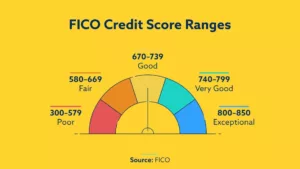The Fair Debt Collection Practices Act (FDCPA) is a federal law that governs how debt collectors can conduct business when collecting consumer debts. But many consumers are not aware that they may have additional protections under their State's Laws that also govern how debt collectors can deal with their residents.
QUESTION: On my credit report I have one collection but shows 2 different balances owed one on trans and a separate amount on exq. I’m requesting validation of this debt. On top of the original debt they have tacked on a 35% interest to the debt. From what I’ve gathered Washington state limit to interest is 12%. What will mostly be the outcome of this verifying the debt I submitted to them?
ANSWER: I cannot accurately predict how a debt collector will respond to your debt validation request; however, the above article lays out some aspects of debt validation that may help you get a better understanding of the process.
Additionally, you may want to use your state’s debt collection requirements when dealing with the debt collector. The state of Washington has laws regulating debt collectors attempting to collect debts from its residents in addition to the Federal Fair Debt Collection Practices Act. In Washington, these laws are the “Collection Agency Act” (RCW 19.16.100) and the “Consumer Protection Act” (RCW 19.86.010).
Typically, the Federal FDCPA says a debt collector may not collect any interest or fee not authorized by the original agreement or by your State’s laws. The interest rate or fees charged on your debt may be raised if your original loan or credit agreement permits it. But some states have laws that govern contracts when it comes to how much costs, fees and interest can be added to a debt. If you still have the contract, it may say what interest rate can be charged or how much it can increase.
If the debt collector’s first contact with you was in writing, then its notice should have contained specific information required by Washington’s Collection Agency Laws such as the name of the original creditor, the original account number, date of the last payment made to the original creditor, and a statement including the original amount of the debt and a schedule of additional charges (such as late fees, interest, and attorneys’ fees) that were added.
If you do not receive a response or the debt validation response is inadequate you can use Washington's Collection Laws as leverage by submitting a complaint to the Washington Attorney General and the office that licenses the debt collector in your state.











